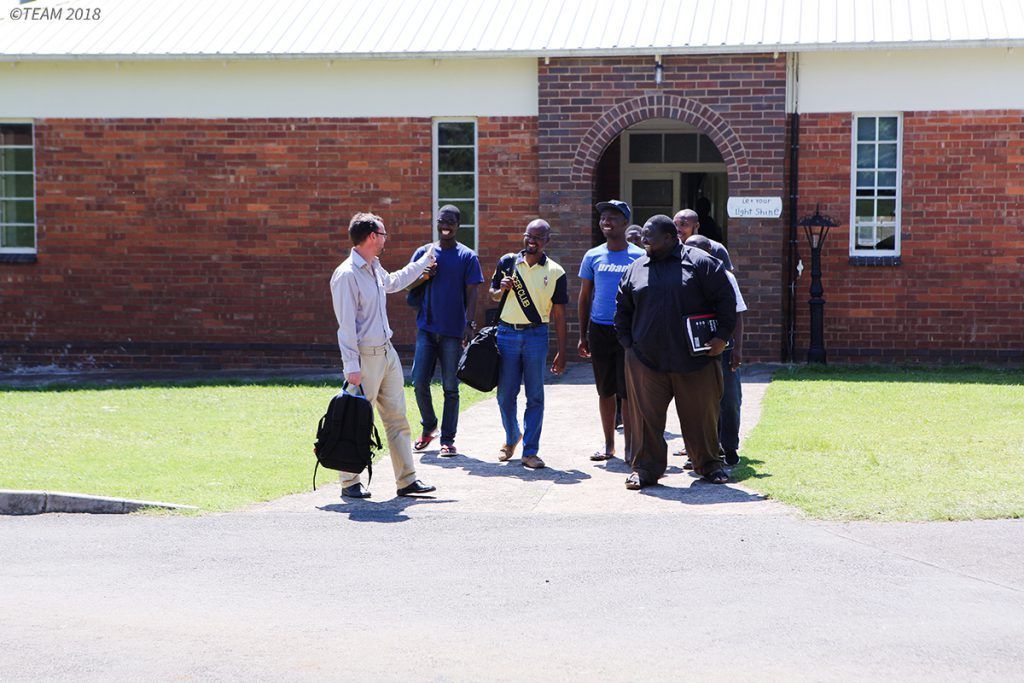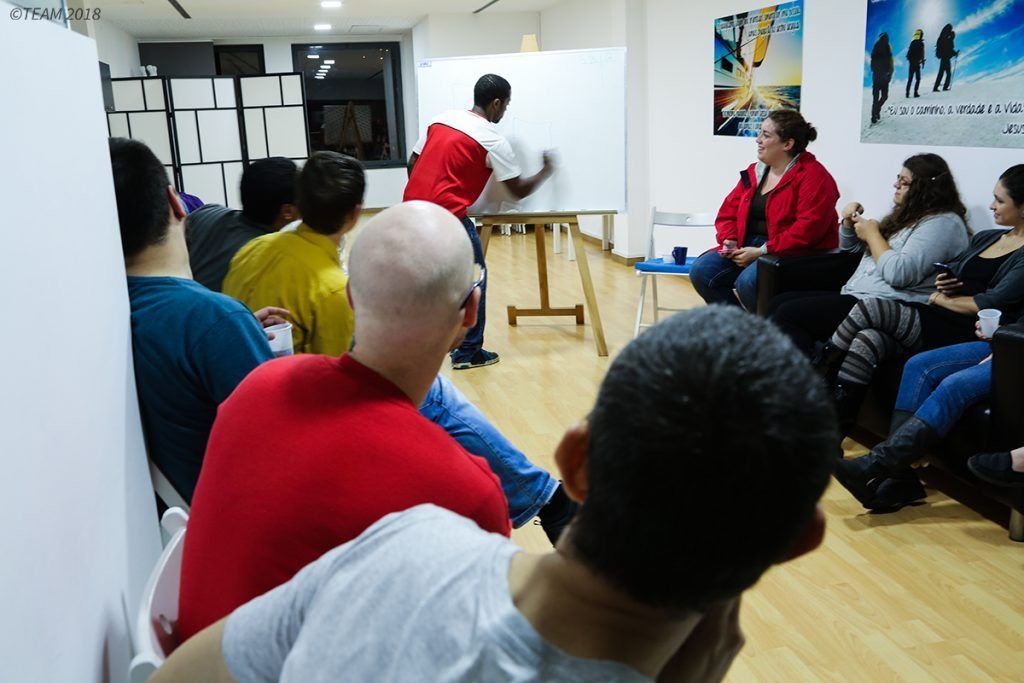Beatriz had grown up in a strict, Catholic home, but she always felt disgusted by the hypocrisy of her family and their church.
Now that she was on her own, studying at the University of Minho , Beatriz was determined to stay as far away from religion as possible. So when her friend, TEAM missionary Diane, invited her to an English and board game night inside a local church building, she hesitated.
But when Beatriz arrived at the church, she felt welcomed — and even comfortable! So comfortable, in fact, that she even decided to attend a conversational workshop the group was holding.
At the workshop, Beatriz opened up about her harmful experiences with the Catholic Church and her fear of religion.
For the first time, Beatriz felt the walls around her heart starting to crack.
She knew she was safe. And finally, she could start to open her heart to the goodness of who Jesus really is.
This month, we invite you to pray with us for university student ministries all over the world. Pray that people like Beatriz will find Jesus through student outreaches.
Sign up here to get the new Prayer Focus in your inbox each month.
1. Ask God to give missionaries wisdom in mentoring university students.
The university students of today are the CEOs, social trailblazers and community leaders of tomorrow. So missionaries have an amazing opportunity when they mentor university students. The ripple effect of how many lives they are potentially impacting is immeasurable.
“How wonderful would it be if these students were committed to Jesus and mature in the faith while serving in these positions?” says Kit Tischler, who works closely with university students in South Africa. “Just think of the ways God could use these young people.”
Ask God to equip missionaries to be effective mentors. Pray that God will help them to understand each student’s unique situation and know how to walk with them in each circumstance.

Ministering to college students isn’t just an investment in young adults. It’s an investment in every community, around the world, that they’ll ever be a part of.
2. Pray that churches will know how to encourage and anchor believing students.
Young people in places like post-modern Europe often view Christianity as the faith of their grandparents. Not as something that’s still relevant in today’s world. That’s one reason why it’s important that the Church reach out to younger generations and address the issues that concern their Christian walks.
Not only are churches in Europe fighting an overall cultural message that religion is irrelevant today, but most churchgoers in Europe are elderly. Most of them truly don’t know how to relate to to a university student-aged crowd.
Pray that local churches will know how to reach out to the university students around them. Pray that believing students will feel welcome and spiritually fed by the Church.

Older believers have a lot to teach college students about the faith, but for that to happen, churches need to feel welcoming and relevant to life.
3. Pray that university students will welcome Christ-centered conversations.
Sometimes it’s hard to open up about something as personal as faith and spirituality.
In Portugal , TEAM missionary Diane Rodrigues works closely with the English Night ministry at her church. Inviting university students to practice informal English and play board games together in a church building is much less intimidating than asking them to a worship service right away.
Diane has found it to be a great way to tear down relational walls and provide opportunities to bring Jesus up in comfortable ways.
Pray that university students will be open to talking about Jesus and the Christian faith. Pray that missionaries will be able to find ways to make entering a church building less intimidating for unbelievers.
Thank you for partnering with us in prayer!
Thank you for partnering with us in prayer! Click here to get a print-out of this month’s Prayer Focus requests and praise reports
*The names of the people you’ve helped may be changed to protect their privacy.




















